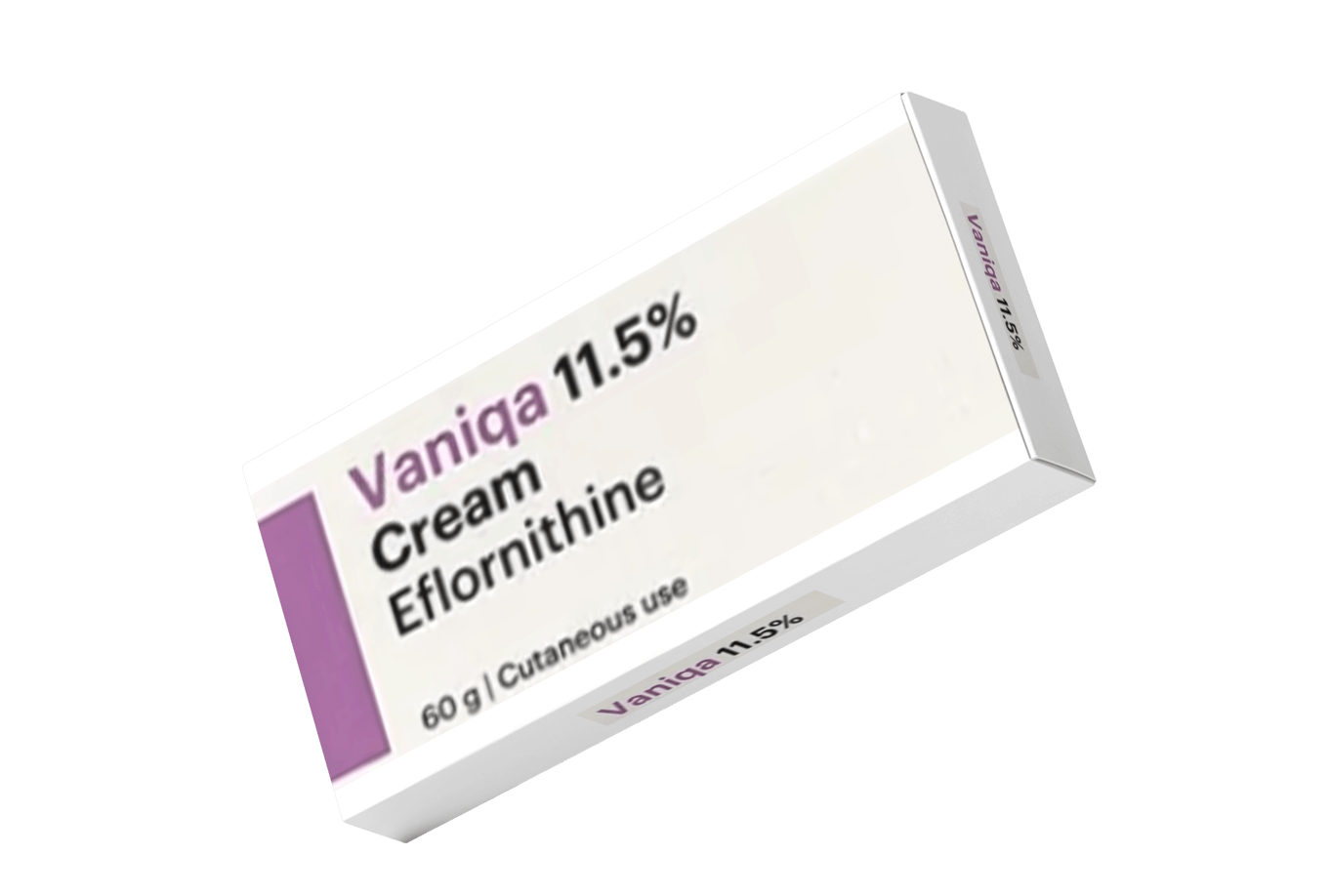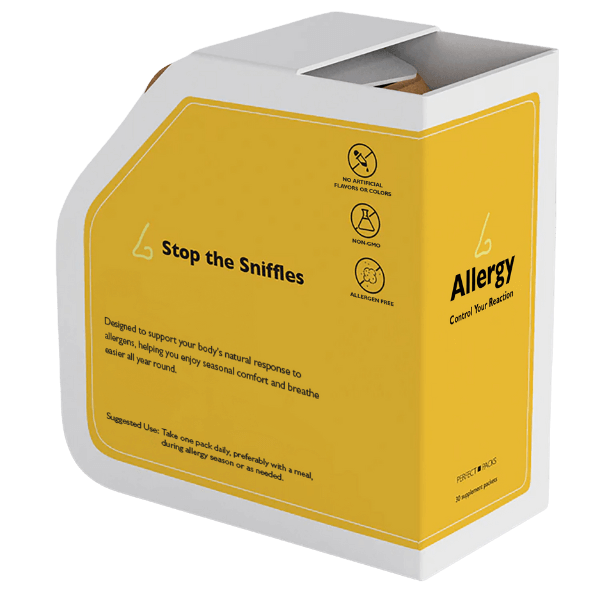Vaniqa Cream (
generic name: eflornithine) is an FDA-approved prescription cream specially designed to treat
hirsutism (unwanted facial hair) in adult women.
Note: The version of Vaniqua coming from IsraelPharm carries a label strength of 11.5%, which is equivalent to 13.9% in the USA.
Hirsutism is a condition that causes excessive growth of coarse, dark hair on a woman’s face in areas more commonly associated with male facial hair (upper lip and chin.) It can also cause hair growth on the back, arms, and abdomen. It is caused by an imbalance in androgens (male hormones).
Some of the more common causes of hirsutism are:
- Polycystic Ovary Syndrome (PCOS), in which cysts on the ovaries can trigger elevated androgen levels.
- Congenital Adrenal Hyperplasia (CAH), a genetic disorder affecting the adrenal glands, leading to increased androgen production.
- Cushing’s Syndrome, a condition where the body produces excessive cortisol, which can stimulate androgen production.
- Medications such as anabolic steroids and corticosteroids, that can increase androgen levels.
The condition may be entirely idiopathic, which means that the cause of hirsutism may be unknown.
Dosage
How to use:
Follow the prescribing doctors instructions in full, and also be sure to read tha Patient Information leaflet that comes wih the medicine.
The usual suggestion is to apply a thin layer of cream to clean and dry skin and thoroughly rub it in until it is no longer visible. If the treated area has just been shaved or undergone a different hair removal treatment, wait at least five minutes before applying the cream. Applying Vaniqa Cream to areas of the skin with scratches, cuts, or irritations may cause stinging or burning.
When applying a dose of Vaniqa Cream, avoid contact with the mouth, inside the nose, and eyes. If cream accidentally gets in these places, wash it well with water.
It is advisable to not wash the treated area for at least four hours after applying the cream. It is also advised to wait at least five minutes after applying a dose of Vaniqa Cream before appling any makeup or sunscreen.
Storage
Store Vaniqa Cream in a cool and dry area out of bright light. Make sure the lid is closed tightly after every dose.
Questions People Ask About Vaniqua Cream
Why was Vinqua withdrawn from the market in the USA?
In the period immediately after the COVID-19 pandemic, there was an acute shortage of some ingredients that go into Vaniqua, and some producers diverted their facilities to other products. Vaniqua has never been suspended by the FDA and remained an approved treatment for hirsutism throughout. At IsraelPharm, we have been able to ensure constant supply all through the years.
Can you have hirsutism without PCOS?
Yes, it’s possible to develop hirsutism without polycystic ovary syndrome (PCOS). Hirsutism can occur due to a number of possible causes, including hormonal conditions, certain medications, or genetic factors.
What happens if I stop using Vaniqua?
If Vaniqua is discontinued after it has been working, then the most common effect is for hair to beging to grow again.
This text is for informational purposes only. Please consult a doctor or pharmacist before using any medication.
Read the information leaflet that comes with the medication.
Most people who use Vaniqua Cream do not experience any adverse side effects. Doctors prescribe this medication because they assess the benefits of such treatment outweigh any likely unwanted effects.
Some of the side effects that have been reported include:
- Acne
- Dry skin
- Itching, stinging or burning, rash or redness of the skin
- Inflammation around the hair follicle
For less common side effects, read the Patient leaflet that comes with this medication before use.
Not all side effects are listed here. If these or other unlisted symptoms persist or worsen, consult a healthcare provider or pharmacist.
The most commmon symptoms of hirsutism in women are the growth of coarse, dark hair in areas such as the upper lip, chin, and cheeks. In more extreme cases, it can extend to the chest, back, and abdomen.
Some other symptoms that relate to hormonal imbalance are acne, irregular menstrual periods, weight gain, and the development of male-pattern baldness.
A definitive diagnosis can only come from a physical examination by a doctor, who would normally order blood tests to measure hormone levels, and and ultrasound to check for cysts on the ovaries in case there are signs of Polycystic Ovarian Syndrome (PCOS).















